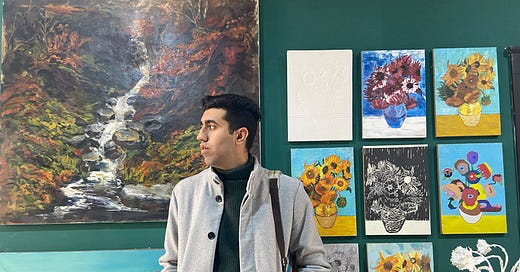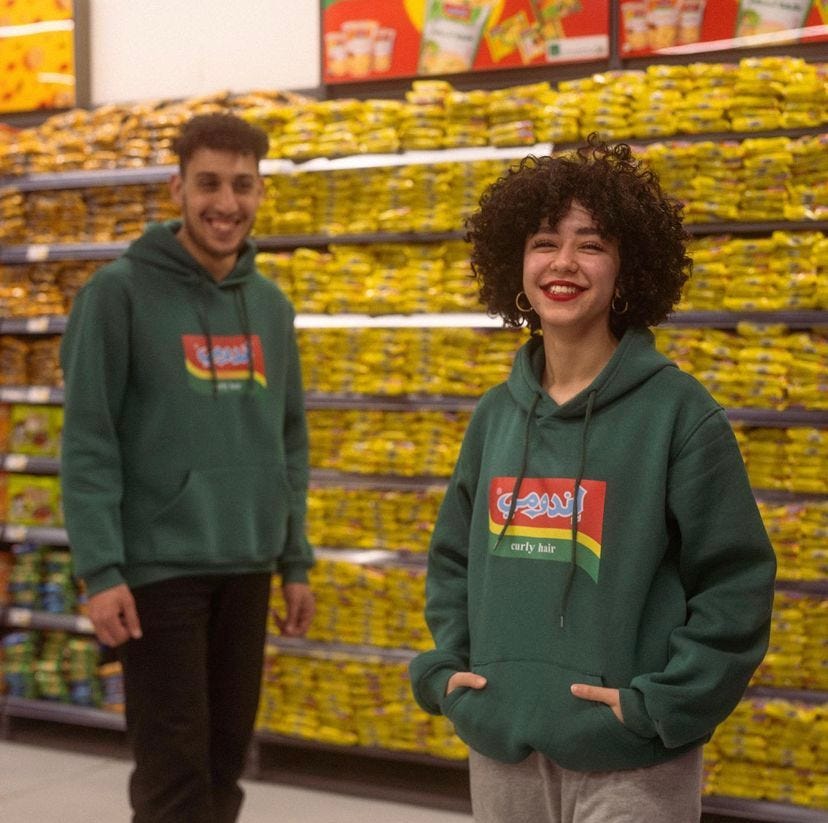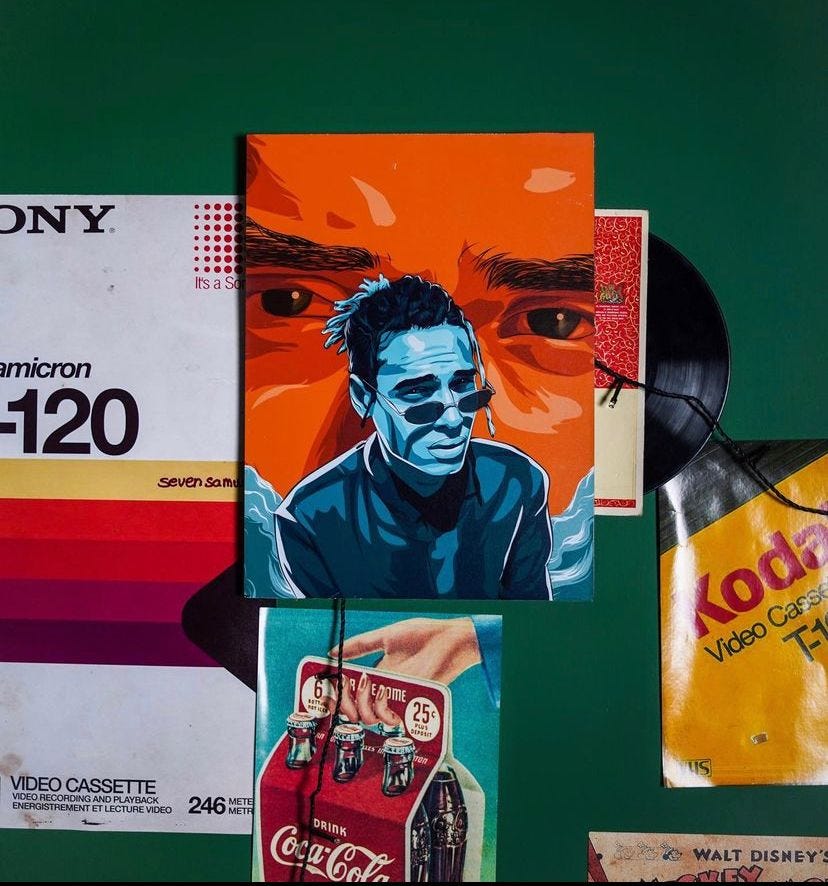Iraq In Print: The Entrepreneur Behind Baghdad’s Digital Art Craze
XO Center is at the heart of a burgeoning art scene that’s giving artists and designers a new way to showcase and sell their work online.
“Iraq is the best place to start something because whatever you do, it’s new,” says Jaafar Alsaadi, the founder of a digital printing platform in Baghdad. That’s true for the 22-year-old, who set up XO Center in 2022 to create a new space for Iraqi artists and designers to sell their work online. His t-shirts, hoodies and totes are now a familiar sight around the city, all featuring original prints by artists and designers from across Iraq and the wider Middle East.
“So many people here have the talent, but there’s no support to present their work,” says Alsaadi, who works with artists to develop their designs for the commercial market. “We help them make the design successful.”
When he first pitched the idea to startup advisors at The Station, a coworking space and incubator in Baghdad, he had no idea it would catch on so fast. As a teenager, he used to get the album covers of American rock band Evanescence printed into posters and distribute them among friends. Then during the Tishreen protests that gripped Iraq in 2019, he started printing revolution art, eventually creating a website to display the work for potential buyers. The concept grew from there.
The platform became the XO Center interface, providing a dashboard for artists and designers to develop their brand and showcase their work while building a client base across the region. “It’s a shortcut for them to start their careers,” explains Alsaadi, who has just re-launched the website following a re-design funded by an Innovation Hub grant from Ideas Beyond Borders.
It's a good industry to be in for young Iraqis, who face high unemployment rates, particularly among youth, with 36 percent currently out of work. “The future is digital art and graphic design, this is where the market is, your work can be implemented thousands of times,” explains Alsaadi, who has helped more than 50 artists and designers secure jobs in Iraq. “Companies are always contacting me with roles they want to fill - graphic designers, animators, digital artists, graphic designers – there’s lots of demand,” he says.
XO Center doesn’t own the rights to the work it prints. The artists are free to sell it wherever they choose. Instead, Alsaadi uses the majority of the sale proceeds to cover the price of the products and printing costs, setting aside 20 percent to ensure the artists receive some commission. “It’s impossible to give them more than this and cover the costs unless we price higher, but that’s not realistic in this market,” he says.
Prices range from a few dollars for printed mugs and pencils, to $18 for a t-shirt, $20 for a hoodie and $60 for a large poster on a wooden base.
Sourcing these products, at the quality XO Center requires, is challenging, particularly in Iraq. Shipping raw materials from Jordan is too expensive, so now he’s speaking with suppliers in Turkey. “A lot of people try to con you, they send you a good sample and then poor products after that.”
But he’s not put off by these challenges. Alsaadi is rapidly conquering the market for digital printing in Iraq and recently launched a sister company to provide BTB printing services for clients including Careem and international toothpaste brand Signal. “We don’t have the same opportunities as places like Dubai, so whenever you do something new people get excited,” he says.
Already he has inspired numerous other small startups, expanding the pool of platforms for Iraqi designers while helping the industry grow. “Entrepreneurs like Jaafar are reframing the future of Iraq. We’re relying on this energy and innovation to build businesses into flourishing sectors that can support a new generation of Iraqis with the appetite to make their country work,” says Faisal Al Mutar, President of Ideas Beyond Borders.
The next step for XO Center will be a physical space, where designers and artists can display their works in different contexts. Alsaadi hopes this will help them reach different audiences, and in doing so offer different perspectives on Iraq, both at home and abroad. “Our designers are trying to make an identity for Iraq, make it alive again by. They are exploring our history, culture and traditions to present Iraq in a better light for the people and the world.”
This article was written by Olivia Cuthbert.






